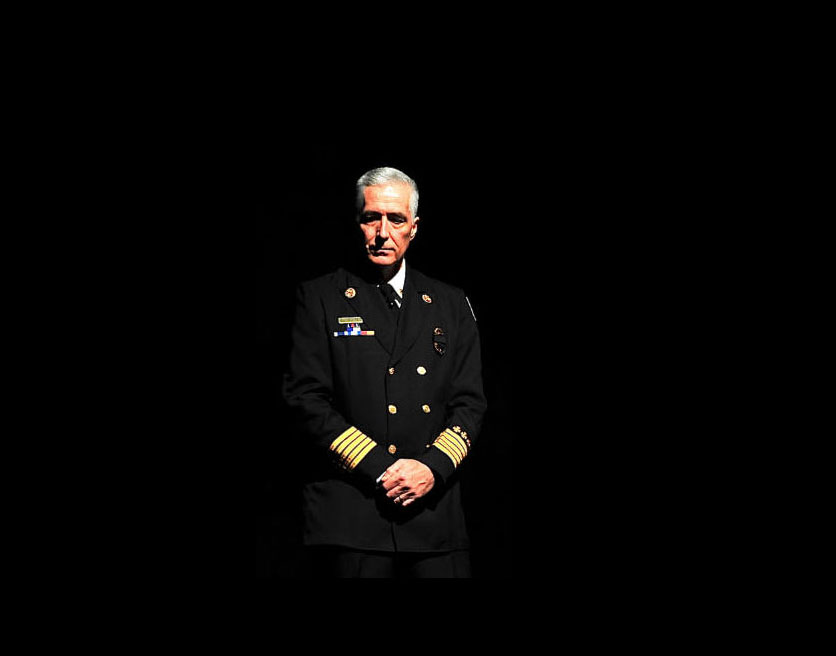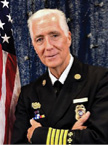

Surviving the Fire Service is the title of a book some friends just released. The title implies an interesting way to look at what is arguably the most rewarding and satisfying career that anyone could ever possibly hope to have. The book takes a hard look at some of the risks, dangers, and concerns associated with being a firefighter. The purpose is to raise your awareness of those topics and arm you with the tools, the knowledge, and the awareness you need not only to survive but also to thrive as a member of the fire service. Firefighting is risky—always was and always will be. That is why we train, study, and pay attention. We accept and prepare for a certain level of risk, and we demand the same of one another.
There is an old adage that goes something like this: “What doesn’t kill you makes you stronger.” That’s fine, as long as it doesn’t kill you. If it does kill you, then it really benefits only the folks who do your autopsy or read the NIOSH report. An autopsy is called a postmortem. We should always be engaged in a “premortem,” a look at the most devastating and potentially fatal aspects of our career. By having that understanding of those risks, we can then avoid them, reduce them, or eliminate them and, thereby, benefit from the incredible rewards of this career.
I believe it was General Patton who said something like, “Any idiot can get themselves killed for their country; heroes kill the other guys.” We need to think of fire and all those other dangers and risks as the other guys. Frank Brannigan, who wrote the iconic fire service book Building Construction for the Fire Service in 1971, taught us, “The building is your enemy; know your enemy.” From our first day to our last, we study building construction, the methods and processes that create pathways and possibilities for fires to spread and buildings to fail. We do this to protect ourselves from fire to ensure our survival.
By understanding the chemistry and toxicity of fire, we can protect ourselves against developing any acquirable cancers. By examining the cardiovascular effects of firefighting, we can protect ourselves from developing cardiovascular problems or developing a high-risk situation related to the cardiovascular system while on the fireground. Understanding that your physical fitness, your emotional fitness, your cardiovascular fitness, and your intellectual fitness can mean the difference between life and death for not only you but also your crew is the beginning of the beginning for serious firefighters.
By addressing the risks, we get the opportunity put forward by two brilliant psychologists, Richard Tedeschi, PhD, and Lawrence Calhoun, PhD, who in 1990 termed the most common phenomenon experienced by most firefighters in their careers: “posttraumatic growth.” What posttraumatic growth means is that men and women like us who are drawn to public service, irrespective of our levels of resiliency, all have an Achilles’ heel, if you will, a weak spot, a soft spot, a vulnerability. Should that vulnerability be exposed, we might experience a mild, moderate, or severe reaction. Our vulnerabilities could be medical: We may be susceptible to some type of cancer related to an exposure that others with the same exposure might not develop. Our vulnerability may be emotional: We may respond to a call differently than the rest of our team.
But, being vulnerable emotionally or physically does not mean that you are weak or defective or incapable of being a world-class firefighter; being vulnerable may be an incredibly important trait. We do not have to fall prey to any of the dangers of our profession. Quite the opposite—awareness, preparation, and teamwork can enable us to avoid those dangers, those diseases, those emotional stresses.
See, the thing about the fire service is that we may be the most just culture on the face of the planet. As everyone nowadays is running around talking about being “woke” and everyone’s running around with their hair on fire about diversity and inclusion, the fire service is, always has been, and always probably will be the most engaging, open, innovative, fair, and decent organization in almost any community. That’s not to say that we haven’t had our share of crazy uncles in the basement, weirdos, bad actors, and rather unflattering moments.
The difference with the fire service is that we did something about it. We agree with Dr. King that everyone should be judged on the content of their character and not any immutable characteristic. We agree with President Kennedy that a nation will be judged not only by the people it produces but by the people it honors and remembers. We accept responsibility for ourselves first and take that responsibility very seriously; we invest in ourselves not only because self-preservation is its own reward but to be dependable and useful to others.
There are risks, but there are rewards, too: appreciation of life, relationships with others, new possibilities in life, personal strength, and spiritual change. Firefighters grow in all five of these areas. And make no mistake about it, there will be bad days—really bad days. There will be days when terrible things will happen to good people and there will be absolutely nothing you can do to change that outcome. There will be days when it just sucks to be a firefighter. But, because of the relationships we develop, we grow in ways that will make us better and make the world better.
Some smart old firefighter once said that you should try to know as much as you can about any job that can kill you. That’s good “survival” advice.

MORE BOBBY HALTON

